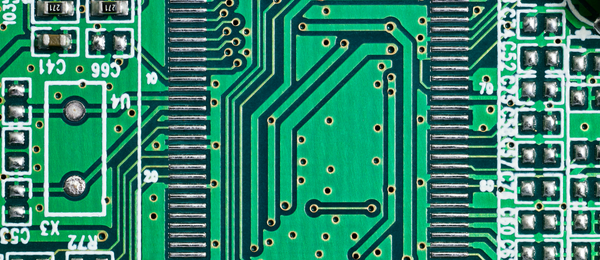At Spaceship we’re long-term investors, but we still keep an eye on what’s happening in the markets day to day. This week, we’re taking a look at some of the bigger movements in our Spaceship Voyager portfolios from the month of November 2022.
Moving up
Alibaba and Tencent
(Tencent rose 34.19%, and Alibaba rose 31.51%)
China’s strict covid-zero policy has had a crushing impact on its local market.
Everyone from normal people to billionaires have been impacted: Pony Ma who founded Tencent, and Jack Ma who founded Alibaba, have both seen their personal net worths pretty much halve in the past year alone.
Back in May, Alibaba’s CEO said the lockdowns were impacting his company’s logistics, supply chains, and consumer demand.
So it’s a big deal that the Chinese Government is signalling a relaxing of the covid-zero policy.
It’s meant Alibaba and Tencent have finished the month as the biggest movers in our Spaceship Universe portfolio.
Microchip companies: Taiwan Semiconductor Manufacturing and Advanced Micro Devices
(Taiwan Semiconductor rose 28.74%, Advanced Micro Devices rose 23.42%)

Microchips are pretty much the brains of the future: also called semiconductors, they power the things we use every day: think mobile phones, computers, and solar panels.
A semiconductor foundry is a factory that produces microchips.
At Spaceship we invest in the world’s biggest foundry, Taiwan Semiconductor Manufacturing Company (TSMC), which has over 50% global market share of outsourced semiconductor production.
So does famed investor Warren Buffett: he recently revealed he took a $5 billion USD stake in the company which caused shares prices to rise.
Advanced Micro Devices (AMD) makes computer processors that can be found in Tesla cars, the Perseverance land rover (currently on Mars), and 5G towers. AMD also powers both the Xbox and Playstation 5 which are ramping up production after being supply constrained last year.
This year, AMD has arguably taken the mantle from Intel as the premier CPU creator. The company released Q3 earnings that met analyst expectations, and reported a 29% increase in revenue year over year.
Moving down
Software companies: Atlassian and CrowdStrike
(Atlassian fell -32.95%, Crowdstrike fell -30.31%)
Atlassian’s an Australian success story. It has a suite of online tools that businesses use to help their workforces communicate and collaborate. It’s especially useful for teams who have to track and report their projects, such as software development and engineering.
The market reacted when Atlassian reported that it’s growing more slowly than usual, with the company seeing ‘companies tightening their belts and slowing their pace in hiring.’ In general, the company benefits when its customers hire and onboard new employees, and this has recently slowed with recession fears.
Crowdstrike is an online cloud security platform, which means it helps companies protect their websites and online information from hacks. If companies get this wrong it leads to disastrous results: take Optus and Medibank as recent examples.
Crowdstrike fell after reporting ‘disappointing earnings’; while it added a 54% increase in yearly revenue, this was lower than had been expected. This means that investors were counting on it to keep growing quickly, and they’ve now dialled back their expectations. It also delivered lower than expected annual recurring revenue (ARR), which is a measure that analysts use to predict subscription customer growth.
Cybersecurity is mission critical and is an invaluable component of IT budgets so we remain highly confident that Crowdstrike is well positioned to capitalise on a large and expanding addressable market.
Tesla
(Tesla fell -18.29%)

Most CEOs aren’t household names. Tesla’s is.
Martin Eberhard and Marc Tarpenning founded Tesla Motors in 2003. They accepted a $6.5 million investment from Elon Musk in 2004, and he became Tesla’s 4th CEO in 2008.
Over the past month, Elon Musk has been in the news, buying Twitter then making and streaming controversial decisions in real-time on his Twitter feed.
At the same time, Tesla’s been trending down; with Morgan Stanley reporting that Musk’s Twitter involvement has had a negative impact on the stock.
Musk has signalled that eventually he’ll downsize his involvement with Twitter, saying, “There’s an initial burst of activity needed post-acquisition to reorganise the company, but then I expect to reduce my time at Twitter.”
We are still optimistic on Tesla, particularly in light of the new electric vehicle tax credits of up to $7,500 available to US consumers.
What’s the biggest takeaway from this month?
We asked our Spaceship Voyager investment team.
"Overall, technology companies are struggling but consumer facing companies such as Starbucks and Shopify are reporting better than expected results.
Rising interest rates and falling markets have caused technology valuations to contract, leading to layoffs and hiring pauses.
For example, in November Meta CEO Mark Zuckerberg announced his intention to “reduce the size of our team by about 13% and let more than 11,000 of our talented employees go.”
As demonstrated above in the Atlassian and Crowdstrike results, it’s difficult for technology companies to grow if their customers are also other technology companies that are not hiring and cutting back on spending.
Surprisingly, the bright spot has been the strength of the US consumer.
Even though interest rates have increased significantly in the US, most households have locked in low mortgage rates for a long period of time, alleviating the near-term pressure of higher mortgage repayments.
Here in Australia, we can fix a home loan rate for 1-4 years whereas in the US, you can lock in rates for 30 years. Additionally, there is still estimated to be at least another US$1 trillion in excess pandemic savings that consumers have access to."
Some of our Spaceship Voyager portfolios invest in Alibaba, Tencent, Taiwan Semiconductor, Advanced Micro Devices, Atlassian, CrowdStrike, Tesla, and Meta at the time of writing.
Important! We’re sharing with you our thoughts on the companies in which Spaceship Voyager invests for your informational purposes only. We think it’s important (and interesting!) to let you know what’s happening with Spaceship Voyager’s investments. However, we are not making recommendations to buy or sell holdings in a specific company. Past performance isn’t a reliable indicator or guarantee of future performance.



